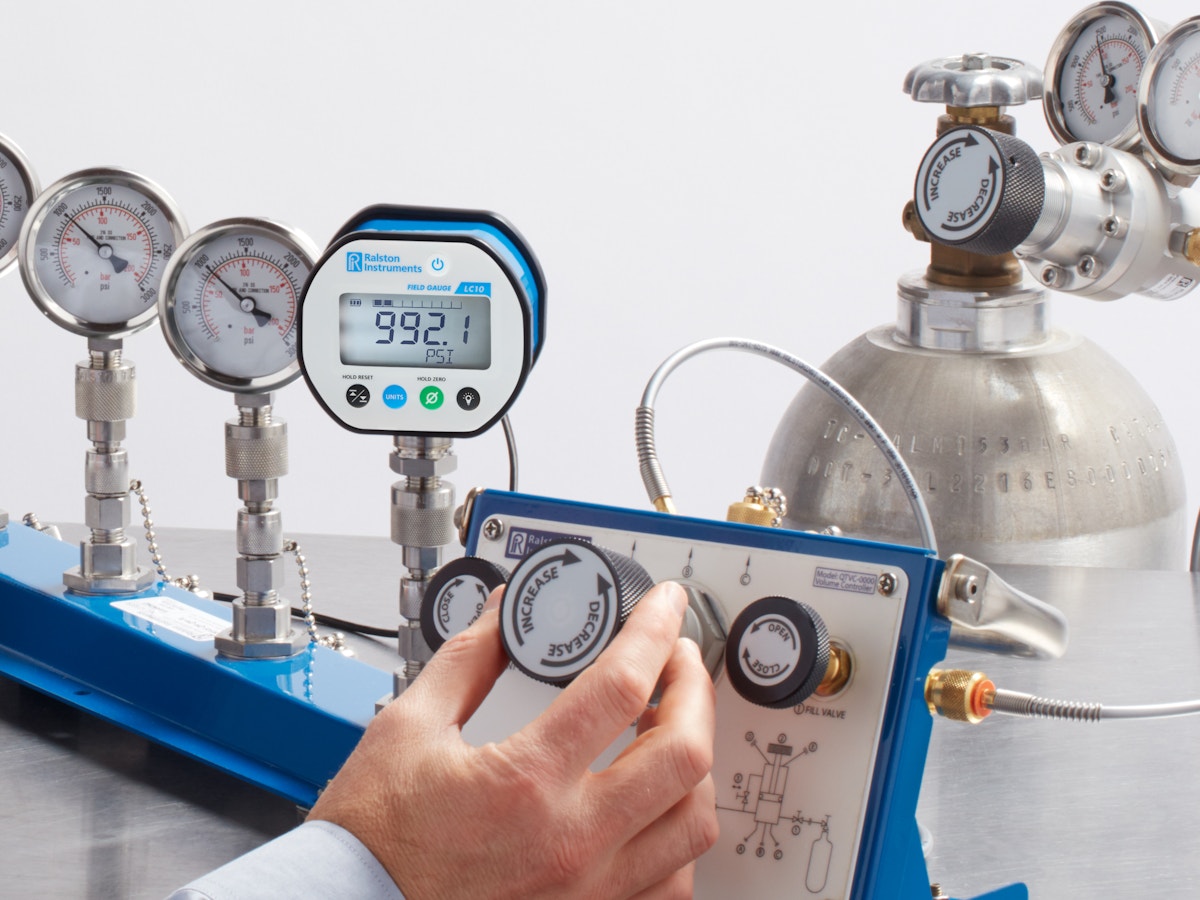Pressure calibration is the comparison of the output of a device used to measure pressure with that of another pressure measurement device, or pressure measurement standard.

Pressure calibration is the comparison of the output of a device used to measure pressure with that of another pressure measurement device, or pressure measurement standard.
